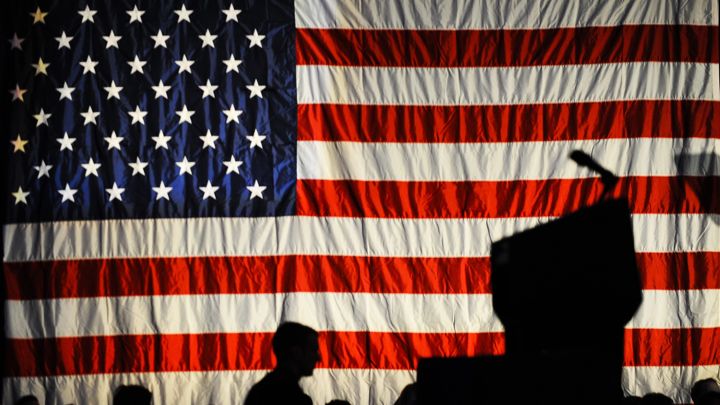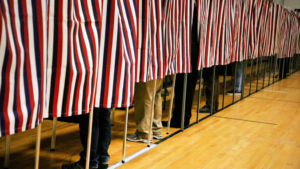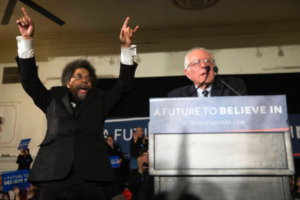#NeverKnow: 4 Things You SHOULDN’T Try to Predict About the 2016 Presidential Election
Birds sing. Dogs bark. Children play. And political pundits make predictions. They just cannot help themselves. It’s a function that comes as naturally to them as breathing. (A GOP communicator I spoke with over a month ago vociferously declared to me, “Donald Trump will not be the Republican nominee.”) Now that a Clinton-Trump 2016 matchup is virtually assured, here’s my advice to the pundits: you don’t always have to pretend you have all the answers. After considering the groundbreaking nature of the 2016 presidential election, the smartest people in politics aren’t making up answers; they’re asking questions.
Here are four things we DON’T KNOW about this election (and likely won’t really be answered until Wednesday, November 9th).
1. Who will win?
Subscribe to Receive Insights
"*" indicates required fields
A diet of cable news commentators with a sprinkling of opinion columnists would have you believe Hillary Clinton is on her way to trouncing Donald Trump in the general election. The more rational of these observers tend to support the claim by pointing out that, while Clinton is unpopular, Trump is more unpopular. The reality is this is an unprecedented election where both major party candidates have shattered records with their net unfavorability ratings. It certainly seems possible that the messaging of these two campaigns could turn into a proverbial race to the bottom to see who can boost the other’s negative ratings more by Election Day. How that translates into mood, turnout and issue prioritization of the electorate is anyone’s guess.
2. Where will “Bernie or Bust” and “Never Trump” voters go?
The GOP is just beginning the process of unifying around Trump and the Democrats will have to do the same. Some have already discussed the strange possible alliance between Sanders’ base of support and Trump. Likewise, there are segments of the Republican Party who have vowed #NeverTrump who may never fall in line. Keep in mind, the Koch brothers have refused to back any candidate thus far, and while they have traditionally backed Republican candidates, their true ideology is far more libertarian. It remains to be seen how both groups go about consolidating support behind their nominees and what degree of success they find, but securing the support of the disaffected factions left over from their fractious primaries will prove crucial in November. The ultimate wildcard, for instance, could be the Libertarian Party making the politically savvy move of nominating former Republican New Mexico Gov. Gary Johnson and him qualifying for the general election debates.
3. Should we trust polling?
For the reasons listed above, polling may prove especially unreliable in this election. Pollsters may also find themselves scrambling for updated and untested polling models to reflect the huge questions of turnout 2016 poses. The Republican primaries and caucuses brought out droves of new voters, all of whom may not be accounted for in existing polling models. All of this comes at a time when the polling industry is already defending its credibility after failures to accurately predict electoral outcomes in 2012 and 2014.
4. How will these candidates impact other campaigns?
Much of the supposed conventional wisdom seems to suggest Trump’s unfavorability at the top of the Republican ticket is going to leading to the GOP losing the Senate and possibly the House of Representatives. This fails to take into account that other piece of political conventional wisdom: all politics is local. No one can predict the variations of split tickets that may be cast at the ballot box in this election. Keep in mind, as just one example, the same Indiana electorate that backed Donald Trump also nominated Mitch McConnell-backed Todd Young for the U.S. Senate over House Freedom Caucus member Martin Stutzman. Some Republican candidates have personalities and histories with their constituents that overtake any “nationalization” of their race. Other Republican candidates may actually be helped by Trump’s nomination because of the demographics of their specific districts or states. The bottom line is that it’s presumptuous to simply predict that Trump will cost Republicans the Senate and hurt all candidates down ticket.
Election season is a lot like March Madness basketball. Every season it comes around and something unpredictable happens and everyone proclaims this is the truly paradigm shattering year. This is usually hyperbole, but every once in a while it’s actually true. This is one of those years. That’s why news consumers should view all predictions with an extra dose of skepticism. If your friends ask you what you think is going to happen between now and Election Day, the only smart answer is: “I don’t know.”



